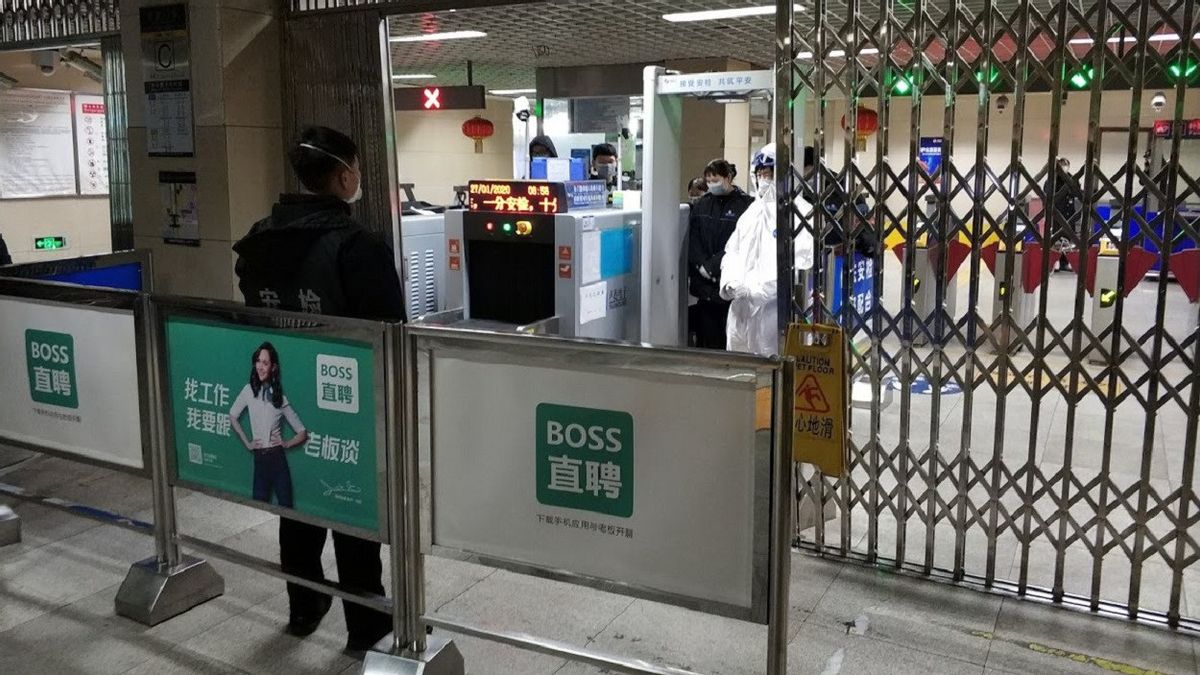JAKARTA - China's two largest cities, Beijing and Shanghai, tightened COVID-19 restrictions on Monday, raising frustration and questions about the legality of steps taken by local authorities.
As authorities grapple with China's worst COVID outbreak since the epidemic began, authorities in the most populous city of Shanghai have launched a new push to end infections outside the quarantine zone by the end of May, people familiar with the matter said.
While no official announcement has been made, over the weekend several residents in at least four of the 16 districts received notices saying they could no longer leave their homes until they were simply taking deliveries, as part of efforts to bring community infections down to zero.
"Home, home!" a woman shouts through a megaphone at residents mingling under an apartment tower in one of the complexes, Reuters reports May 9.
Two residents in the fifth district, Yangpu, said they were notified of a similar measure, with vendors in their neighborhood to be closed as part of the effort.
Meanwhile, a strong reaction came from the public, after the authorities' online accounts forced residents who were neighbors with positive cases of COVID19, to go into centralized quarantine and requested the handover of house keys for disinfection. The move was denounced by experts as a violation of the law.
One video shows police taking keys after a resident refuses to open the door. In another example, voice recordings of calls circulated on the internet, where a woman argued with officials demanding to spray disinfectant in her home, even though she had tested negative.
Professor Tong Zhiwei, who teaches law at the East China University of Political Science and Law, wrote in an essay that was widely circulated on social media on Sunday, saying such acts are illegal and must stop.
"Shanghai must set a good example for the whole country on how to carry out COVID prevention work in a scientific and lawful manner," Tong wrote.
Such steps should only be taken in an emergency, he said in the essay, according to which more than 20 academics have provided input.
Separately, Liu Dali, a lawyer with one of China's largest law firms, wrote a similar letter to authorities.

Copies of both letters have been censored from the Chinese internet, although users have re-uploaded screenshots. Meanwhile, posts from Tong's social media account on the Weibo site were blocked on Sunday night. Liu and Tong did not immediately respond to requests for comment.
China is adamant it will stick to its zero-COVID policy, to combat the disease that first emerged in the city of Wuhan in late 2019, despite an increasing toll on its economy.
Authorities have also responded to criticism of policies that are seen as saving lives. They point to the much higher death toll in other countries that have relaxed restrictions, or scrapped them altogether, in a bid to "live with COVID" despite the spread of infections.
"We must insist on regulating the flow and control of the movement of people," the Shanghai municipal government said in response to a Reuters question about the latest restrictions.
According to him, a 'one size fits all' approach should be avoided and each district allowed to tighten measures, according to its own situation. On Monday, Shanghai reported a decline in new cases for the 10th day in a row.
In Beijing, residents in the worst-hit areas were told to work from home. Meanwhile, the number of roads, complexes, and parks closed grew on Monday, as the city of 22 million grappled with its worst outbreak since 2020.
Not only that, but the number of suspended bus routes has also increased as more rounds of COVID-19 tests have been tested in several districts, including Chaoyang and Fangshan, both of which the city authorities have described as a 'priority' in the city's counter-epidemic response.
Beijing reported 49 new locally transmitted cases for May 8 on Monday, bringing its tally of infections since April 22 to more than 760.
The capital has also been hoping to escape the weeks of lockdown that Shanghai has endured, but a growing number of residential buildings under lockdown orders have residents on edge.
VOIR éGALEMENT:
"I recently rented an apartment in this complex, and I didn't receive any notification," said a 28-year-old resident of the Changping District in northern Beijing surnamed Wang, after being barred from leaving his compound on Monday.
"I've been working from home, but I was worried I might run out of daily supplies."
Residents received a notification on Monday morning that a positive case had been detected in the area. A nanny who lives in the same compound said the lockdown meant she couldn't get a new job.
"Today is the first day of work and now I can't go out," said the 40-year-old woman named Meizi.
The English, Chinese, Japanese, Arabic, and French versions are automatically generated by the AI. So there may still be inaccuracies in translating, please always see Indonesian as our main language. (system supported by DigitalSiber.id)


















